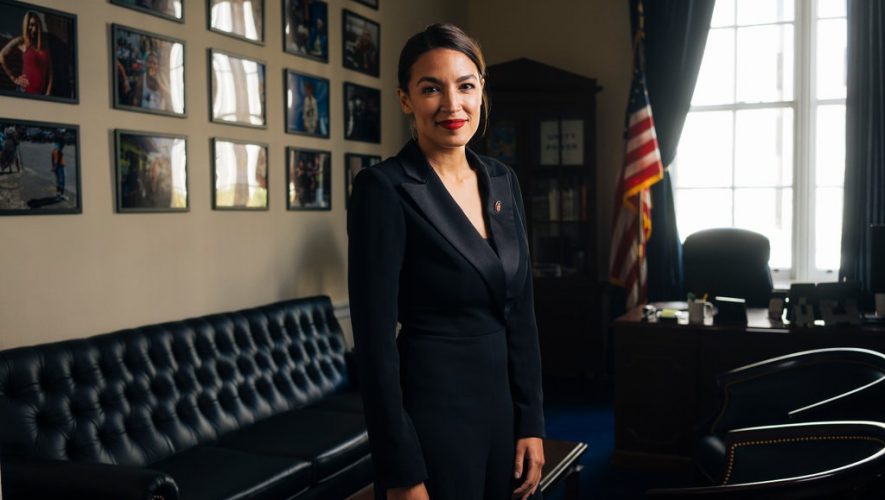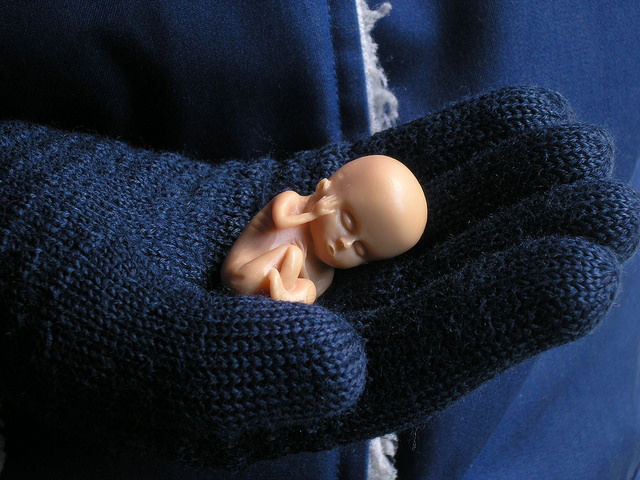The phenomenon of Alexandria Ocasio-Cortez (AOC) has inhabited many political discussions since she defeated Joe Crowley in the 2018 midterms. Since then, she has gone on to light up Congress as the radical politician that is not afraid to call out colleagues who have been in power longer than she has been alive. Her unfiltered yet eloquent vernacular has garnered massive support from young voters and threatens the far right—even former President Donald Trump.
AOC is not the first youthful newcomer to experience a meteoric rise in fame. Richard Nixon was elected at age thirty-nine as a controversial anti-communist firebrand in 1946, while Bill Clinton was dubbed “boy governor” in Arkansas after being elected at thirty-two. After remarkable careers in politics, both of them ended up in the White House. AOC could presumably follow a similar trajectory, cultivating an influential political career.
But currently, her power is a paradox: while she has immense influence over public discourse due to her visibility, she simultaneously lacks political authority that will come with experience and time in government. To break out of her paradoxical presence, she must overcome a long list of challenges that accompany nascent progressivism.
AOC’s Potential
There is no doubt that AOC is a political talent that only comes around once in a generation.
Her working-class background fosters a deep connection with her constituents—something that similar former-firebrand Hillary Clinton could never achieve. Growing up in the Bronx, AOC lived through growing income inequalities and the negative effects of economic policies on lower-income families; her father passed away shortly after the 2008 economic crash, putting her whole family in financial risk. After getting a Boston University degree in economics and international affairs, she worked as a bartender at a Manhattan taco joint, living paycheck to paycheck. Because of her upbringing, AOC is relatable in a way most lawmakers are not.
Additionally, she has pledged never to take donations from political action committees (PACs) or Wall Street, garnering intense political support from progressive-leaning constituents. With Bernie Sanders presumably stepping out of the limelight after two unsuccessful presidential bids, the party’s far-left is ready for new leadership.
The upcoming generation’s desire for diversity in politics further cements AOC’s potential for future party leadership. In a profession where nearly 80 percent of congresspeople are White and 73 percent are men, AOC serves as a breath of fresh air for those who are tired of seeing older White men make decisions that disproportionately affect them.
She’s progressive, she’s young, and she’s relatable. AOC has the potential to foster an extremely successful political career. What could stop her?
Relationship with the Establishment
Unfortunately, it might just be her progressive appeal.
Since the inception of her whirlwind campaign—and as one of the few democratic-socialists in Congress—AOC has made it clear that she will not play by Washington’s old rules. From day one of her Congressional career, she has not been afraid to call out even the House’s most powerful members to voice her progressive policies.
Even before her first swearing-in ceremony in 2018, AOC participated in a sit-in at then Minority Leader Nancy Pelosi’s office to advocate for the Green New Deal climate policy, indicating her willingness to work against the leadership to stand for what she believes in. She notoriously endorsed Bernie Sanders’ presidential campaign in 2019, echoing his desire to “reclaim our democracy.” Sanders is known best for his far-left ideas—including free college and socialized healthcare—which centrists have yet to embrace. Similarly, much of AOC’s appeal lies in her progressive and forward-thinking policies.
Moderate democrats still dominate party leadership, so AOC’s path to a powerful and influential career is currently narrow, even though her ambitions are still unknown. Her decision to publicly identify as a democratic-socialist has ostracized her from amassing the support she needs to rise in the party ranks or make the sweeping changes associated with the progressive movement.
Conversely, if AOC were to sign on to moderate policies to further her relationships with establishment Democrats, her base would question her partnership with the very ideologies she entered Congress to reform. But, the mere suggestion of bipartisan support towards many of her progressive policies is practically infeasible; a Republican who affiliates with someone as left-leaning as AOC would almost certainly lose their next election. Likewise, AOC is constrained from bipartisanship by her refusal to accept centrist attitudes.
AOC must also overcome her tumultuous relationship with the Democratic leadership. Her skirmishes with party leaders proved detrimental to her last December when Representative Kathleen Rice beat her for a coveted spot on the House Energy and Commerce Committee, which furthers environmental policy. While Democrats invited AOC to join the committee, a secret ballot vote gave Rice the position with a 46–13 vote, displaying her ostracization. The message was clear: leadership will not put up with new members stepping out of line.
AOC’s decision to denounce establishment Democrats is boxing her into a corner with few options for legitimate influence in the current House dynamic. She will not be able to create the impact she is looking for on her own. Since establishment Democrats inhabit almost every leadership position in Congress, she must maintain a relationship with Congressional leaders. Speaker Pelosi is primarily responsible for appointing members to committees and deciding what bills get brought to the floor. So, regardless of ideological divisions, AOC needs Pelosi’s support to gain influence.
AOC’s Power Dichotomy
Part of the struggle AOC faces stems from her sensationalization in the press. From the get-go, the New York representative was the talk of the town. Even outside of the political bubble, she has become a hero for millennials and Gen Z alike. Whether it be live streaming herself putting together IKEA furniture while drinking wine or sharing her black-bean soup recipe, AOC embeds political discourse into everyday life. This skill, coupled with her relatability, results in her immense popularity with the general public.
AOC’s popularity has caused her to adopt two distinct positions in the world. In the general public, she has more name recognition than any other established politician like Amy Klobuchar or even then-presidential candidate Kamala Harris. AOC is one of the most well-known American politicians right now, giving her immense power over political discourse.
However, because of her newcomer status in Congress, AOC realistically has very little influence. While she has the unwavering support of “the Squad”—a group of six progressive House members—it is insufficient to create a legacy of successful progressive policies. Due to the House’s size, individual members don’t have much power over movement and passage of legislation. Coalitions and caucuses exist to overcome this coordination problem. The Congressional Progressive Caucus—which AOC is a member of—is growing but not enough to enact policies into law on its own.
This limitation creates a problem when her supporters expect Washington to adopt reforms quickly. AOC may certainly succeed in furthering the progressive cause, but the federal government is a massive operation that changes slowly. The country is unlikely to see AOC’s desired change in her lifetime.
The reality is, politics is not an efficient vocation. It is slow-going, long-term, and can be frustrating from an outside perspective. But as former President Barack Obama once said, large democratic societies are like ocean liners—little adjustments turn the ship slowly, until ten years from now, it is in a very different place than before. Turn too fast, and the whole ship will tip over. But with time, the ship will turn. Progressivism embraced too quickly will rattle the establishment Democrats who still hold most of the party’s power. The country and the Democratic party have been slowly shifting left in policy decisions, and increased progressivism is likely to continue. But, it will not be accepted overnight.
Because of the consistent dichotomy of power, AOC currently exists in a paradoxical state. AOC’s popularity with voters allows her to sway public opinion and garners political influence. However, within the sheltered walls of the Capitol, her political clout is inconsequential. The system forces AOC to wait her turn for power, which could take decades. To voters, she is a superhero who isn’t afraid to stand up to the villains and tyrants in power to do what is right. But within the hallowed halls of the Capitol, she is just one of 541 members who also think they are just that.
Spreading Progressivism
As progressivism continues to spread and younger generations idolize AOC, the junior representative has the opportunity to become a major player in the Democratic Party. However, to do so, she must overcome the challenges of nascent progressivism; most notably, her unwillingness to work within political expectations and among the establishment.
However, these characteristics are in part rooted in her ideology. The progressive wing of the Democratic Party is relatively new, as the Progressive Caucus was established in 1991. The novelty has yet to wear off. The progressive ideology is far from moderate, which makes it even harder for veteran politicians to accept. Ideas like free college and achieving zero carbon emissions are revolutionary—just radical enough that it could prevent AOC from ever amassing the support she needs. Trailblazing does not necessarily correlate with power. To become the leader she could one day be, AOC must shed the radicalism of her persona while maintaining her progressive appeal.
If AOC can form lasting coalitions and relationships with Democratic leadership, she has the potential to create a lasting legacy. Perhaps in ten or twenty years, AOC will join the list of Democratic powerhouses also known by their three-letter initials—FDR, JFK, and LBJ.



